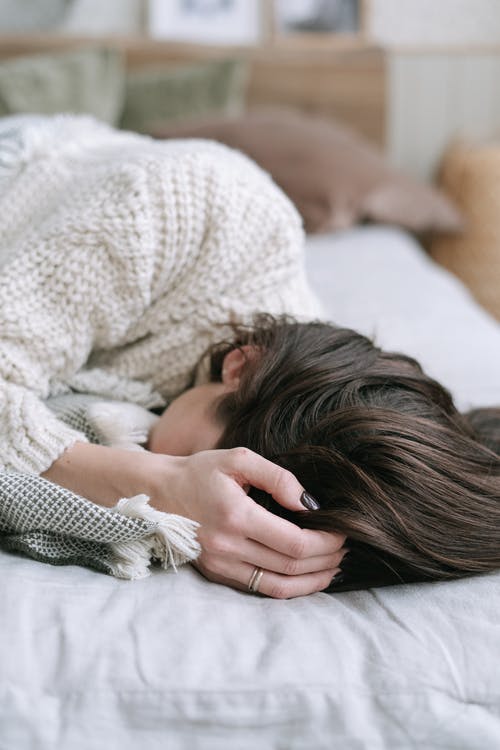Regular Marijuana Use May Lead to Sleep Problems

A new study found that frequent intake of cannabis may increase the likelihood a person will sleep too little or too much.
Although some people turn to cannabis as a sleep aid because it makes them drowsy and relaxed, a large new study shows that marijuana may interfere with proper rest, especially if you’re a heavy user.
While National Sleep Foundation guidelines suggest healthy adults get between seven and nine hours of sleep per night, an investigation published December 17 in the BMJ journal Regional Anesthesia & Pain Medicine found that recent cannabis users were more likely not to get optimal sleep than those who hadn’t used cannabis in the previous month. Looking at responses from 21,729 adults between ages 20 and 59 who participated in the National Health and Nutrition Examination Survey (NHANES), researchers at University of Toronto discovered that the 3,132 who identified themselves as recent marijuana consumers were over a third more likely to report short sleep (less than six hours nightly) and 56 percent more likely to have long sleep (more than nine hours nightly).
Nightly sleep for the study population as a whole averaged just under seven hours. About 12 percent were getting under six hours of shut-eye, while 4 percent were sleeping beyond nine hours each night.
Recent marijuana users also had a 31 percent higher likelihood of trouble falling asleep, staying asleep, or sleeping too much in the prior two weeks. Nearly 3 out of 10 were more apt to have discussed a sleeping problem with a doctor. The researchers noted, however, that recent use didn’t seem to affect daytime drowsiness.
The data also suggested that as consumption increased, so did the likelihood of unhealthy slumber. Those identifying as moderate users (consuming cannabis on fewer than 20 of the previous 30 days) were 47 percent more likely to sleep nine or more hours a night compared with nonusers.
For the heavy users (who said they partook on 20 or more of the previous 30 days), the likelihood of sleeping nine or more hours jumped to 76 percent. Compared with nonusers, this group was also 64 percent more apt to have short sleep.
“There’s a kind of big misconception about the role that cannabis can have as a sleep aid,” said Evan Winiger, a postdoctoral research fellow who has been studying the effects of marijuana on sleep at the University of Colorado Anschutz, in an interview with the College of Arts and Sciences.
Winiger, who was not involved in the new study, said that regular marijuana use may disrupt how sleep repairs, organizes, and consolidates memories.
Because marijuana use in North America has soared as more states have decriminalized its use, scientists expect to see sleep problems continue to rise as well.
“Increasing prevalence of both cannabis use and sleep deprivation in the population is a potential cause for concern,” wrote the study authors.
“Despite the current literature demonstrating mixed effects of cannabis and various cannabinoid formulations on sleep architecture and quality, these agents are being increasingly used as both prescribed and unprescribed experimental therapies for sleep disturbances. Given the growing prevalence of cannabis use, future studies should continue exploring the relationship to human sleep.”
420 Intel is Your Source for Marijuana News
420 Intel Canada is your leading news source for the Canadian cannabis industry. Get the latest updates on Canadian cannabis stocks and developments on how Canada continues to be a major player in the worldwide recreational and medical cannabis industry.
420 Intel Canada is the Canadian Industry news outlet that will keep you updated on how these Canadian developments in recreational and medical marijuana will impact the country and the world. Our commitment is to bring you the most important cannabis news stories from across Canada every day of the week.
Marijuana industry news is a constant endeavor with new developments each day. For marijuana news across the True North, 420 Intel Canada promises to bring you quality, Canadian, cannabis industry news.
You can get 420 Intel news delivered directly to your inbox by signing up for our daily marijuana news, ensuring you’re always kept up to date on the ever-changing cannabis industry. To stay even better informed about marijuana legalization news follow us on Twitter, Facebook and LinkedIn.




